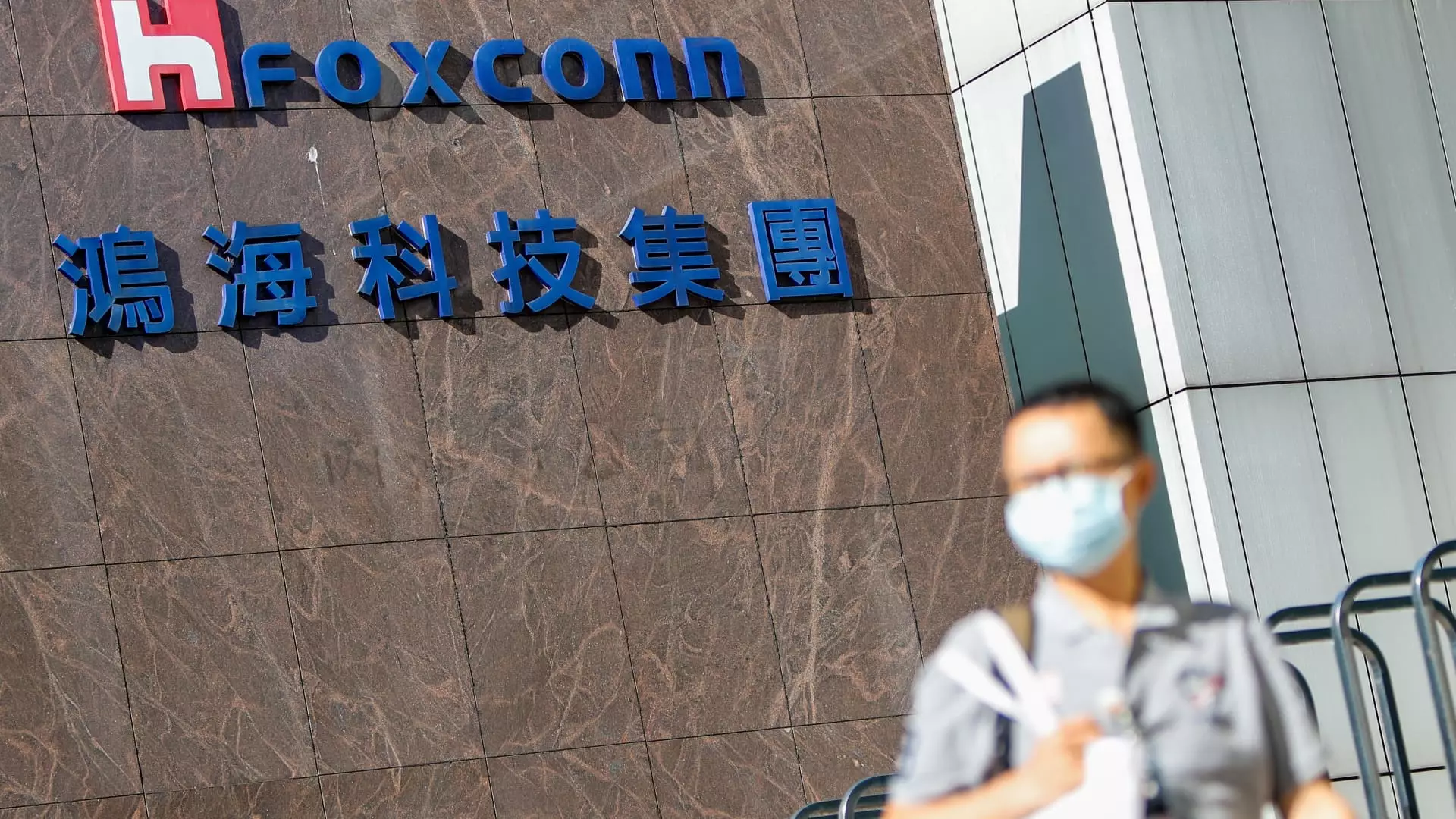Foxconn, the renowned Apple iPhone supplier, has revealed its semiconductor strategy to prioritize the production of “specialty chips” rather than competing in cutting-edge chip technologies. Chiang Shang-Yi, the chief strategy officer for semiconductor at Hon Hai Technology Group, emphasized that they do not strive to chase the most advanced technology. Instead, they concentrate on specialty technology, specifically semiconductors found in sectors such as automotive and the Internet of Things (IoT). It is worth noting that specialty chips in the automotive industry are typically manufactured using mature technology, such as 28-nanometer or larger chips.
Nanometer measurements in chips refer to the size of individual transistors on the chip. Generally, smaller transistors result in more powerful and efficient chips, but their development becomes increasingly challenging. While companies like TSMC and Samsung are racing to produce highly advanced 2-nanometer and 3-nanometer chips, Hon Hai acknowledges that competing in this area would be futile. Hence, their unique approach involves managing the supply chain and focusing on specialty technology, which they believe is more strategic and timely.
Expansion into the Electric Vehicle Industry
Hon Hai Technology Group, recognized as the world’s largest contract electronics manufacturer responsible for assembling Apple products, has recently diversified its operations to include semiconductors and electric vehicles (EVs). Regarding EVs, their focus lies in power devices and silicon carbide chips, which have become increasingly popular among EV manufacturers due to their higher efficiency at higher voltages.
In 2021, Foxconn introduced EV prototypes developed by Foxtron, a joint venture between Foxconn and Taiwanese automaker Yulon Motor. Although they currently produce a limited number of EVs, Foxconn aims to capture a 5% market share globally by 2025. This aggressive target places them in direct competition with established players such as Tesla, BYD, and Volkswagen. Hon Hai’s strategy for EVs involves attacking all fronts, including components, modules, platforms, and contract, design, and manufacturing services (CDMS). By offering a comprehensive range of EV-related services, they aim to achieve cost competitiveness and disrupt the traditional profitability of original equipment manufacturers (OEMs) in the automotive industry.
To stay ahead of the competition, Foxconn recognizes the importance of remaining involved in various aspects of the EV market. This broad approach allows them to gain a comprehensive understanding of the industry and develop innovative ideas. Jun Seki, Hon Hai’s chief strategy officer for EVs, highlights the importance of collaboration with customers and building their ideas into their vehicles. This approach allows them to make customers more competitive in the rapidly evolving EV market.
The Challenges of the Semiconductor Industry
While Hon Hai has found success in various sectors, its foray into the semiconductor industry has faced significant challenges. The semiconductor market is highly competitive, with established players possessing extensive experience and intricate supply chains. Earlier this year, Foxconn withdrew from a joint venture with Indian conglomerate Vedanta to establish a semiconductor and display production plant in India. This setback highlights the difficulties faced by new players attempting to enter a market dominated by established competitors.
Despite these challenges, Hon Hai’s CEO and chairman, Young Liu, refrains from labeling it as a failure. He believes that the situation is not yet finalized and emphasizes the ongoing efforts to collaborate with the government to gain support for their proposals. Foxconn has shown resilience by diversifying its production away from China and exploring opportunities in countries such as India, Indonesia, and Thailand. In India, Foxconn plans to invest over $600 million in a phone manufacturing project and a separate semiconductor equipment facility, indicating their commitment to the Indian market. Liu envisions India accounting for 20% to 30% of Hon Hai’s manufacturing, fulfilling a role similar to that of China.
By collaborating with different countries and fully understanding the supply chain, Hon Hai aims to stay ahead of potential disruptions and anticipate market trends. Two years ago, the global chip shortage impacted the automotive industry, resulting in delayed shipments due to the lack of chips. By having a comprehensive understanding of the entire supply chain, Hon Hai can preemptively address such challenges and provide better lead time management.
Foxconn’s focus on producing specialty chips and their expansion into the electric vehicle industry reflects their strategic approach to remain competitive. While they may not chase after cutting-edge chip technologies, their emphasis on the supply chain and specialty technology provides them with unique opportunities and competitive advantages. Although their semiconductor ambitions have faced initial setbacks, Hon Hai’s willingness to adapt and diversify geographically positions them for continued growth and success in the ever-evolving technological landscape.


Leave a Reply